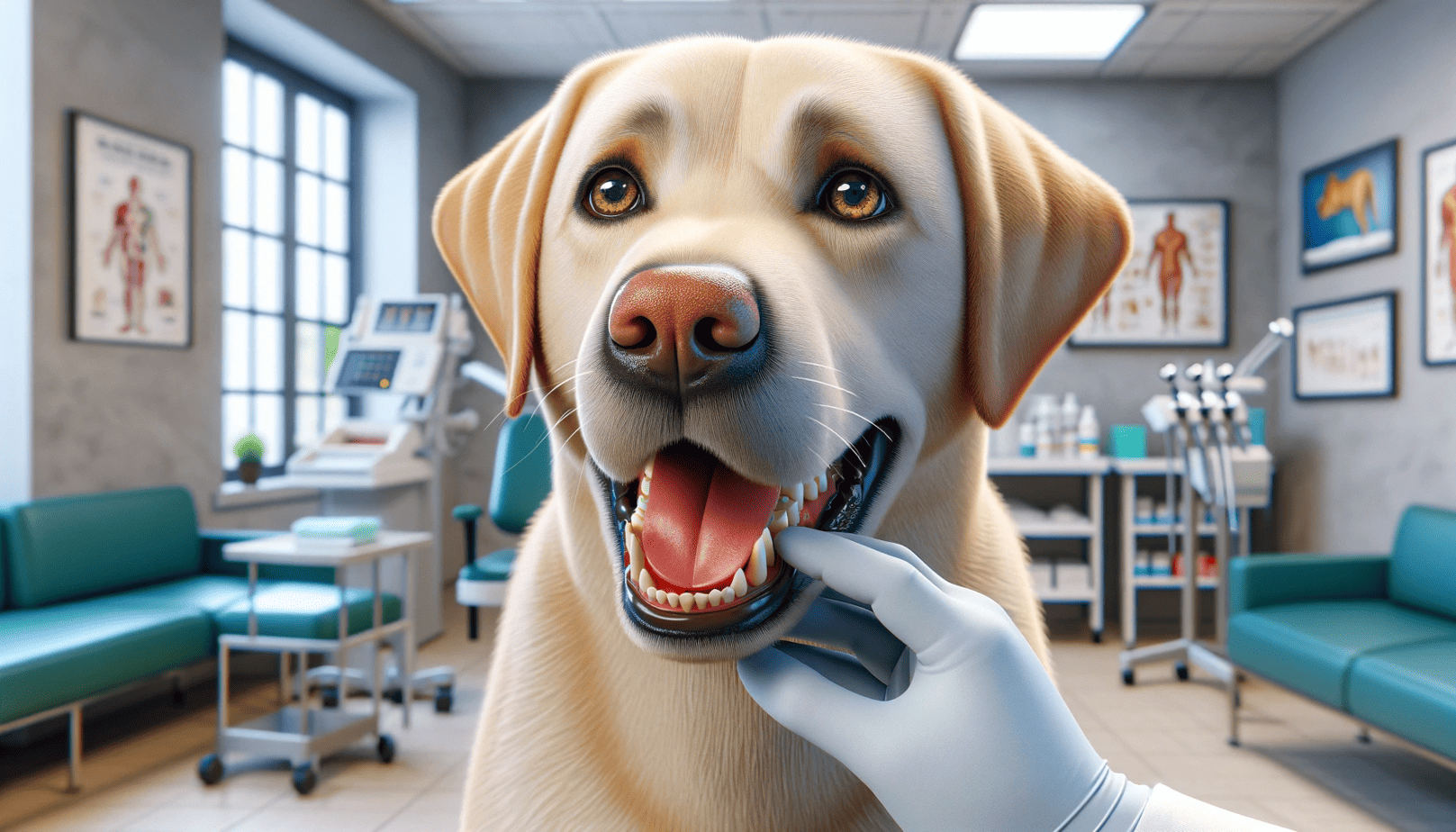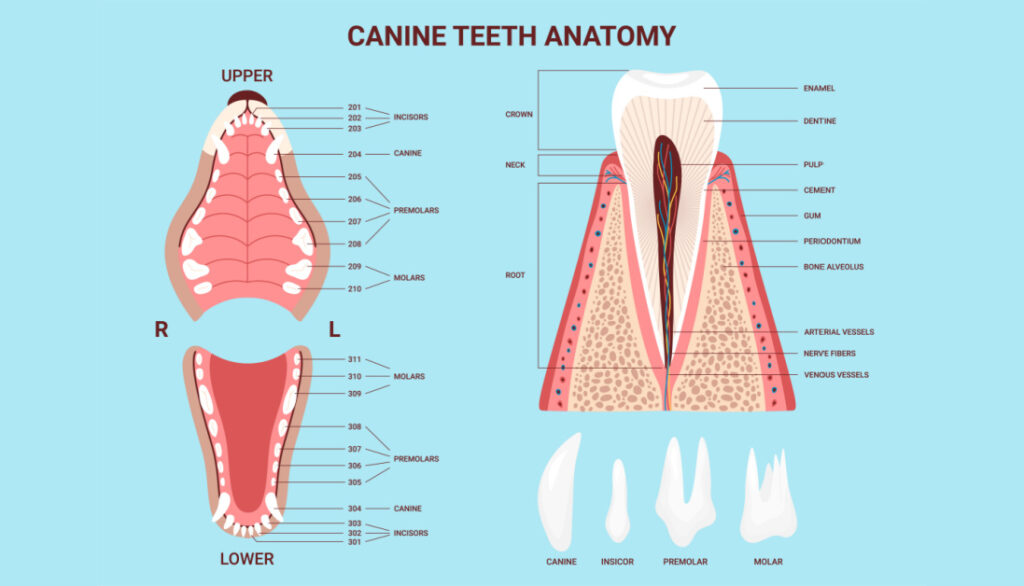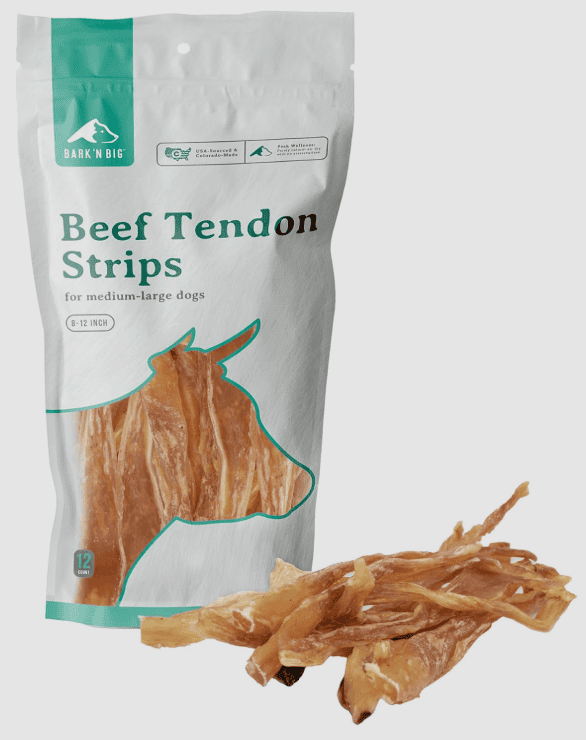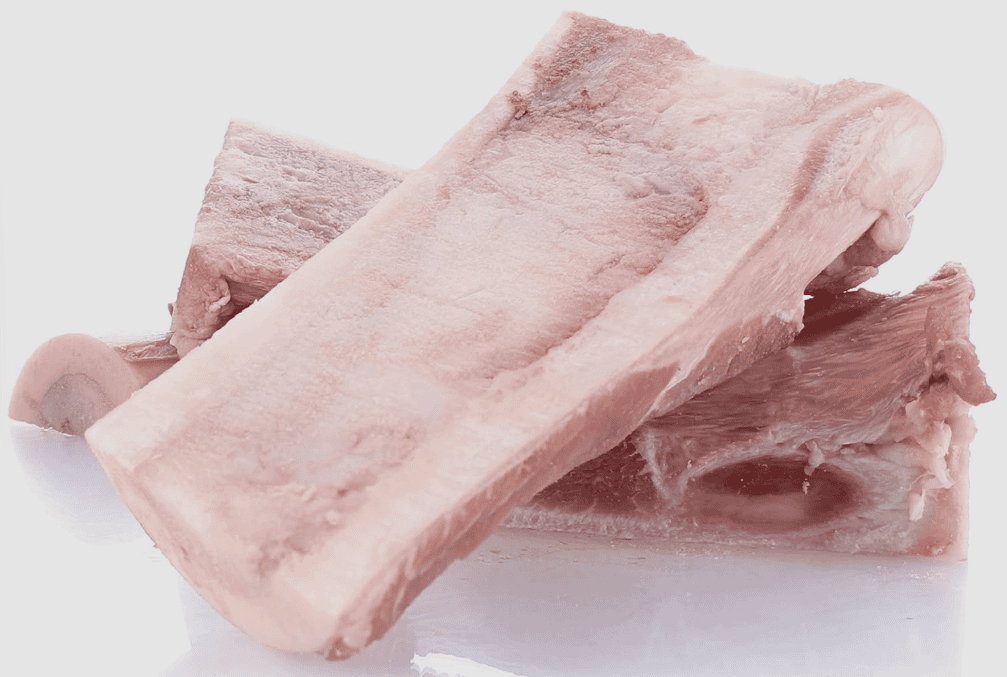Hi there, fellow dog lovers! I’m Dr. Candy, your friendly holistic veterinarian. Today, I want to talk about a topic that’s crucial to your Labrador’s overall health, but often overlooked – Labrador Dental Health.
Just like us humans, our furry friends can suffer from a variety of dental health issues. In fact, dental disease is one of the most common health problems in dogs, especially in Labradors. But don’t worry, with proper care and attention, we can keep those canine smiles bright and healthy!
Good oral hygiene is not just about avoiding bad breath (although that’s a bonus!). It’s about ensuring your Labrador’s overall health and wellbeing. Dental diseases can lead to severe problems like heart disease and kidney disease if left untreated. So, let’s get into it and learn how to keep your Labrador’s teeth clean and healthy, shall we?

Spotting the Signs of Dental Disease in Your Labrador
As a holistic veterinarian, I can’t stress enough the importance of paying close attention to your Labrador’s dental health. A dog’s mouth can tell us a lot about their overall health, and early detection of dental disease can save your Labrador from a lot of discomfort and potentially serious health issues. So, let’s dive into the signs of dental disease in Labradors.
Firstly, bad breath is more than just an unpleasant smell. It’s often the first sign of dental disease. While it’s normal for your Labrador to have a certain doggy breath, a strong, foul odor can indicate a problem. Loss of appetite or difficulty eating can also be a sign of dental disease. If your Labrador is suddenly uninterested in their food, or seems to be having trouble chewing, it may be due to oral discomfort or pain.
Another sign to look out for is changes in chewing habits. Labradors are known for their love of chewing, so if your dog is favoring one side of their mouth or has stopped chewing their favorite toys altogether, it could be a sign of dental discomfort. Excessive drooling or changes in the saliva can also indicate dental disease. If your Labrador’s saliva becomes thick or stringy, or if they start drooling more than usual, it’s time to check their oral health.
Furthermore, bleeding gums or discolored teeth are clear signs of dental disease. Healthy gums should be pink, not red or white, and teeth should be clean, without any brown or yellow tartar.

Remember, dental disease doesn’t just affect your Labrador’s mouth. It can lead to more serious health problems, including heart, liver, and kidney disease. That’s why it’s essential to keep an eye out for these signs and seek veterinary care if you notice any changes. Regular teeth cleaning and proper oral hygiene can go a long way in preventing dental disease and ensuring your Labrador’s overall well-being.
Common Dental Health Issues In Labrador
As a veterinarian, I’ve noticed that Labrador Dental Health is a topic that often goes unnoticed by many pet parents. Labradors, like other breeds, can suffer from a range of dental health issues. Here are some of the most common ones:
- Periodontal Disease: This is a common issue in Labradors and can lead to tooth loss if not treated. It starts with the build-up of plaque, which hardens into tartar. This can cause inflammation and infection of the gums.
- Tooth Decay: Just like in humans, dogs can also suffer from tooth decay, often as a result of a diet high in sugars and carbohydrates.
- Broken Teeth: Labradors are known for their love of chewing, and this can sometimes lead to broken or fractured teeth. These can be painful and can also lead to infection.
Addressing Labrador Dental Health early on can prevent these issues from developing. Regular teeth cleaning, a healthy diet, and the use of dental chews can all contribute to maintaining your Labrador’s oral health. Remember, your Labrador’s mouth is a window into their overall health, so it’s important to keep it in top shape!

Conventional Dental Health Treatments
When it comes to maintaining your Labrador’s dental health, there are a number of conventional treatments available that can help keep your furry friend’s teeth clean and healthy.
Anesthetic Dental Cleanings
One of the most common treatments is anesthetic dental cleanings. This involves a professional veterinarian performing a thorough cleaning of your Labrador’s teeth under anesthetic. It’s a highly effective way of removing plaque and tartar build-up, as well as addressing any other dental issues that might be present.
However, as with any procedure involving anesthesia, there are some potential health obstacles to be aware of. These include heart problems, drug sensitivities, seizures, and the effects of age. It’s important to discuss these risks with your vet before deciding on this type of treatment.
Potential Individual Health Obstacles
Every Labrador is unique, and as such, may have individual health obstacles when it comes to dental care. For example, Labradors with heart problems may require special care during anesthetic dental cleanings, as anesthesia can sometimes put extra strain on the heart.
Similarly, some Labradors may have drug sensitivities that can affect how they react to anesthesia. Seizures can also be a concern, as certain anesthetics can potentially trigger a seizure in susceptible dogs.
Age is another potential obstacle. Older Labradors may have a harder time recovering from anesthesia, and may also be more likely to have underlying health issues that could complicate dental treatments.
Understanding these potential health obstacles is crucial in ensuring your Labrador receives the best possible dental care. Always consult with your vet to assess your dog’s individual health status and discuss the most appropriate treatment options for your Labrador’s dental health.
Remember, maintaining your Labrador’s dental health is a crucial part of their overall wellbeing. Regular cleanings and check-ups can help keep their teeth and gums healthy, and prevent more serious health issues down the line.
Dr. Candy’s Holistic Approach To Oral & Dental Health
As a passionate advocate for pet health, I firmly believe in a holistic approach to maintaining your Labrador’s dental health. This involves two key components: a balanced, nutritious diet and the use of oral health specific probiotics. Let’s delve into these two aspects.
A Healthy Diet for Dental Health
Just like humans, our furry friends’ dental health is significantly influenced by their diet. Here are some dietary guidelines to keep your Labrador’s teeth healthy:
- Low-Carbs: A diet low in carbohydrates can help prevent the formation of plaque on your Labrador’s teeth. Carbs break down into sugars, which can contribute to tooth decay.
- Avoid Added Sugars: Sugar is a major culprit in dental diseases. It’s best to avoid dog foods and treats with added sugars.
- Enzymes In Fresh Food: Fresh foods, particularly raw or lightly cooked meats, contain natural enzymes that can help maintain your Labrador’s oral health. These enzymes can assist in breaking down plaque and tartar build-up.
Oral Health Specific Probiotics
In addition to a healthy diet, I recommend incorporating oral health specific probiotics into your Labrador’s routine. Probiotics are beneficial bacteria that can help balance the microflora in your dog’s mouth, thus promoting oral health.
One product I highly recommend is Probiora for Dogs, an oral health targeted probiotic. This particular probiotic is designed to support your Labrador’s oral health by fighting off harmful bacteria, reducing plaque, and freshening breath. It’s easy to administer, too. Just sprinkle it onto their food once a day.
Remember, maintaining your Labrador’s dental health is an ongoing commitment. With a balanced diet and the right probiotics, you can help keep your Labrador’s teeth and gums healthy, and their breath fresh. And as always, regular vet check-ups are essential for catching any potential dental issues early.
So, let’s make a pact to prioritize our Labrador’s dental health, because a healthy mouth means a happy, healthy dog!

Recommended Dental Chews & Products For Labrador
The Failure of Commercially Promoted Dental Chews
As a dedicated dog parent, I know you’re always on the lookout for the best products for your Labrador. However, it’s important to be aware that not all commercially promoted dental chews are as beneficial as they claim. Many of these chews are packed with artificial flavors, colors, and preservatives that can harm your Labrador’s health over time. Moreover, many of these dental chews are too hard, potentially causing tooth fractures, while others are too soft and do not provide the necessary cleaning action.
Additionally, some products, such as drinking water additives, may seem like a quick fix for your Labrador’s dental health, but they can actually harm the beneficial bacteria in your dog’s gut. These additives alter the pH balance in your dog’s mouth, which can lead to an overgrowth of harmful bacteria.
Dr. Candy’s Recommended Dental Chews & Products
Now, let’s discuss some of the recommended dental chews and products that can truly benefit your Labrador’s dental health. The key is to focus on single source natural proteins. Here are a few options:
Tendons
Tendons are a fantastic natural chew for your Labrador. They are tough and fibrous, which helps to scrape off plaque and tartar from your dog’s teeth. Plus, they are a good source of protein and collagen, promoting good joint health.

Raw Marrow Bones
Raw marrow bones are another excellent choice for maintaining your Labrador’s dental health. They are a natural source of calcium and phosphorus, which are essential for healthy teeth and bones. Furthermore, the act of gnawing on bones can help to clean your dog’s teeth and gums.

Bully Sticks
Bully sticks are made from 100% beef muscle, providing a natural and digestible chew for your Labrador. They can effectively remove plaque and tartar and are a good source of protein. However, always supervise your dog while they’re chewing on a bully stick to prevent any choking hazard.

Remember, while these chews can contribute significantly to your Labrador’s dental health, they are not a substitute for regular teeth cleaning routines and vet check-ups. Always supervise your dog while they are chewing to prevent any choking hazards.
By prioritizing your Labrador’s dental health, you’re not only ensuring that they have a fresh breath and a beautiful smile, but you’re also helping to prevent serious health issues down the line. Be discerning when it comes to commercial products and always opt for natural, healthy options whenever possible. Your Labrador will thank you for it!
Frequently Asked Questions
1. Why is dental health important for my Labrador?
Dental health is crucial for Labradors as it helps prevent various oral diseases, maintain overall health, and ensures fresh breath.
2. How often should I brush my Labrador’s teeth?
It is recommended to brush your Labrador’s teeth at least 2-3 times a week to remove plaque and prevent tartar buildup.
3. Can I use human toothpaste to brush my Labrador’s teeth?
No, you should never use human toothpaste for your Labrador. Human toothpaste contains ingredients that can be harmful if swallowed by dogs. Always use toothpaste specifically formulated for dogs.
4. Are dental chews and toys beneficial for my Labrador’s dental health?
Yes, dental chews and toys can be beneficial for your Labrador’s dental health. They help in reducing plaque and tartar buildup, promote healthy gums, and provide mental stimulation.
5. When should I take my Labrador to the vet for a dental check-up?
It is recommended to take your Labrador to the vet for a dental check-up at least once a year. Regular dental examinations can help identify any potential dental issues early on and ensure proper treatment.
